This post contains affiliate links from which I may receive a small commission, at no extra cost to you. In no way does this affect my opinion or the information I provide on the product. Please read my disclaimer for more info.
We’re all aware that expecting mothers should follow some dietary recommendations.
Pausing on raw meat and alcohol consumption, reducing coffee and cigarette breaks, and getting plenty of calcium, protein, iron, and folates are a few examples.
But what most people don’t know is that a mother’s diet while pregnant can modulate her baby’s genes. This phenomenon can actually change some of their characteristics.
It’s all epigenetics, which are the stable and inheritable changes in gene expression that don’t modify the primary DNA sequence. These include DNA methylation and post-translational histone modification.
In other words, your environment, including your diet, can directly impact your genes— and your child’s genes if you are expecting. Incredible studies have shown this time and time again.
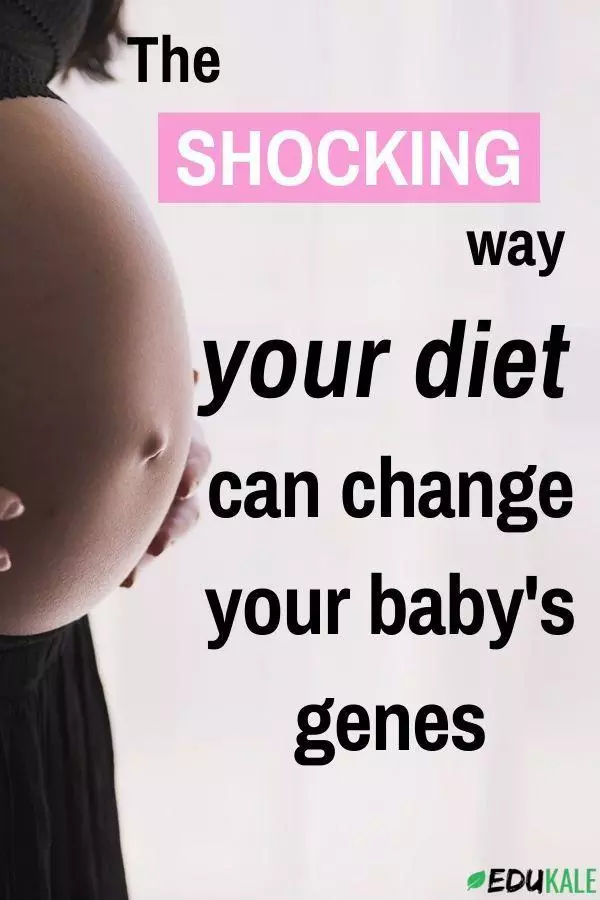
A high-protein low-carb diet during pregnancy can cause greater stress for the baby in the future.
In the UK, a study was done with 70 36-year-old men and women whose mothers had eaten different types of diets during pregnancy. They were submitted to minor stressful situations (such as public speaking). Scientists measured their cortisol secretion, an indicator of their psychological stress levels.
Depending on the mothers’ diets, the cortisol levels varied. Subjects whose mothers had eaten an unbalanced high-protein low-carb diet had greater cortisol responses.
In short, the more meat and fish consumed by the expecting mother, the higher the individual’s stress levels in the future.
A junk-food diet during pregnancy predisposes the baby to obesity and diabetes.
Studies on rats have shown that a maternal junk food diet in pregnancy and lactation promotes increased adipose tissue in the offspring.
This means that the babies whose mothers ate junk food were fatter than those whose mothers ate standard diets. After weaning, those babies were much more likely to consume junk-food (which was freely accessible for them). In addition, even after following a regular diet for 7 weeks, they still had higher levels of fat tissue. *
This means that the effect of a pregnant mother’s diet on her baby’s genes is long-lasting and hard to reverse. Even proper nutrition isn’t enough to go back to the standard state.
Furthermore, studies on mice have shown that a high-fat diet during fetal life could induce the type 2 diabetes phenotype. This means that eating a high-fat diet while pregnant can increase your child’s chances of developing diabetes later on.
Of course, these studies are highly unethical to carry out on pregnant women. However, some research is starting to corroborate these results on humans.
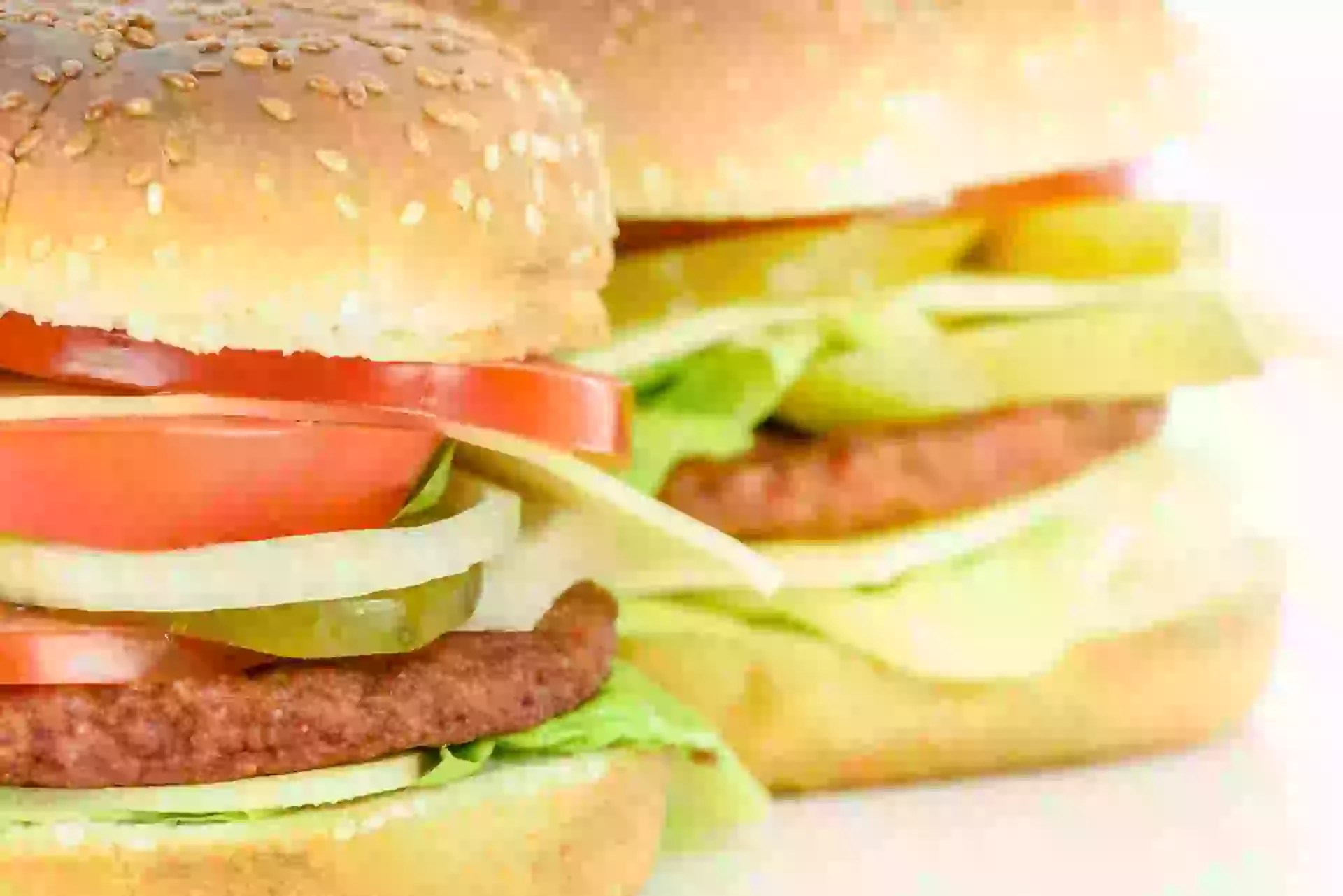
A pregnant mother’s calorie-restrictive diet can also impact the baby’s genes.
From 1944 to 1945, there was a huge famine in the German-occupied Netherlands. Around 4.5 million people had their food shipments cut off, and had to survive on soup kitchens. Reports indicate they were provided around 900 calories a day.
A myriad of studies have been carried out regarding this topic, and are all very edifying.
One of them looked at around 900 individuals born in this region between 1945-1946, as well as before (1943) and after (1947) the famine. They were given questionnaires regarding their quality of life, and their depressive symptoms were assessed.
When compared to their siblings born outside of the famine, individuals whose mothers had been pregnant during the famine had poorer mental health and a diminished quality of life.
In addition, studies showed that individuals conceived during the famine had an increased cardiovascular disease risk. They also had a greater chance of developing schizophrenia spectrum disorders, and higher blood pressure.
Moreover, they were prone to a decreased glucose tolerance. This means that the sugar they ate was cleared from their blood less effectively, which can cause type 2 diabetes.
Mechanistically, these individuals had less DNA methylation on their IGF2 gene* than their siblings conceived outside of the famine period, even 60 years later.
*This gene plays an essential role in growth and development before birth.
This means that drastic food restriction during pregnancy can have lasting effects on your child. It can affect their mental health or increase their risk of disease.

In conclusion, a mother’s diet definitely impacts her baby’s genes.
Eating a high meat low carb diet, a junk food diet, or not eating sufficiently during pregnancy modulates your baby’s genes. This can affect their future weight, stress levels, mental health, risk of developing certain diseases, etc.
The aim of this article isn’t to put any more pressure on expecting mothers. In fact, some research is starting to show that what the father eats may also have repercussions on the baby.
The goal is simply to understand why certain recommendations are important to follow. I encourage you to see this from a positive perspective. Instead of thinking about the potential harm, look at all the beneficial things you could do for your baby just by eating a little healthier. While eating healthy, balanced meals is key, you may also want some of the additional benefits that prenatal vitamins provide!
FInally, here are some articles to get you started with healthy eating:
Health benefits of nutritional yeast
Health benefits of kale
Healthy foods that actually aren’t
Health benefits of fiber
-Lucie
If you’re interested in nutrition, its impact on our health, and the science behind it, you should definitely read How Not to Die. In this book, Doctor Michael Greger, founder of Nutrition Facts, examines the top causes of death in America and explains how your diet can prevent— and in some cases even reverse— them. His advice is all backed by science and he writes in a very clear and entertaining way. This book isn’t a list of what you already know. It will teach you the keys to living a long healthy life, in a simple and practical way, and without spending fortunes on supplements and pills!
PLUS if you want to take it a step further, you can check out the How Not to Die Cookbook to implement the advice easily!

Welcome!
I'm Lucie, the nutritionist behind Edukale! If you'd like to learn more about me, click HERE !
Read More!
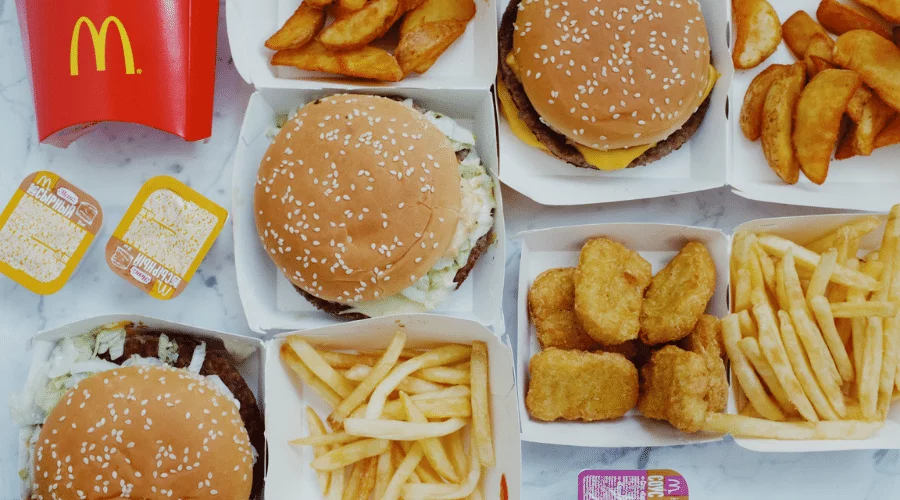
The truth about processed foods
You’ve probably heard that it’s best to reduce your intake of “processed foods” for healthy eating, and increase your intake of whole foods for optimal health.

The Best Foods to Fight Fatigue
Do you feel like you’re always tired and that you need multiple coffees to get you through the day?
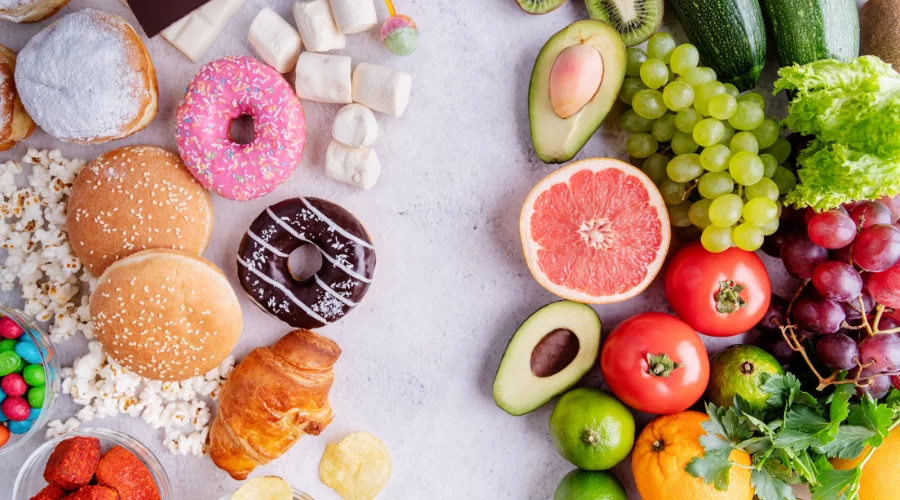
how to find the balance between healthy eating and dieting
It can be hard to find the right balance between healthy eating and dieting without becoming obsessed with food.
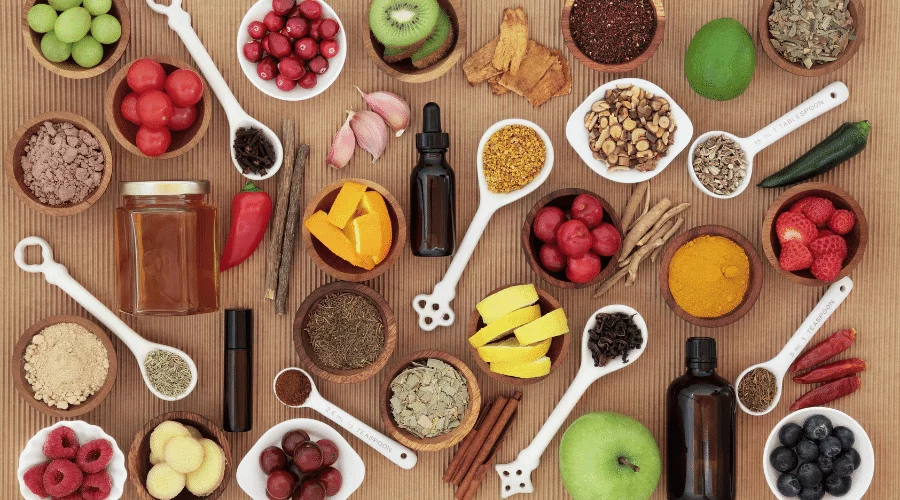
Can you use food as medicine?
“Let food be thy medicine, and let medicine be thy food.” We’re all familiar with this quote attributed to Hippocrates, and we all know the huge impact our food choices have on our health.
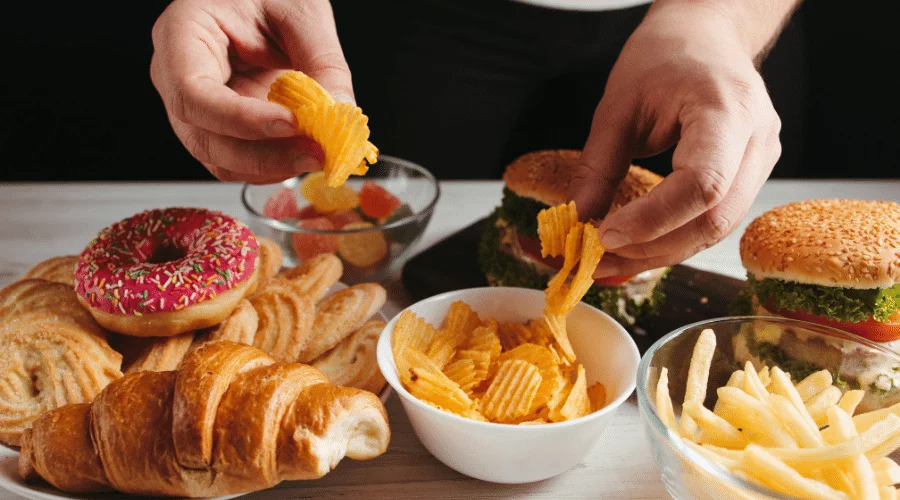
How to finally stop overeating for good!
Overeating means eating past your body’s actual needs, and it can be rather uncomfortable.
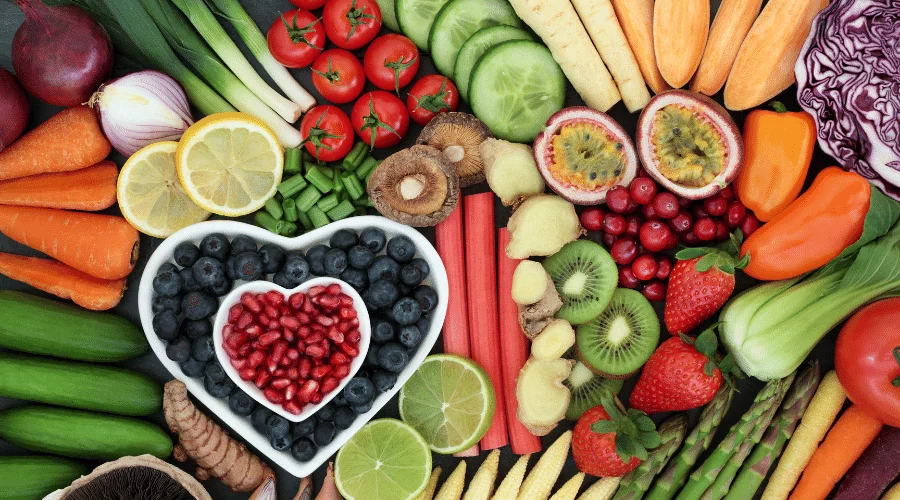
The anti-inflammatory diet: get rid of inflammation
You’ve certainly heard about the anti-inflammatory diet before and the benefits it could have on your body.
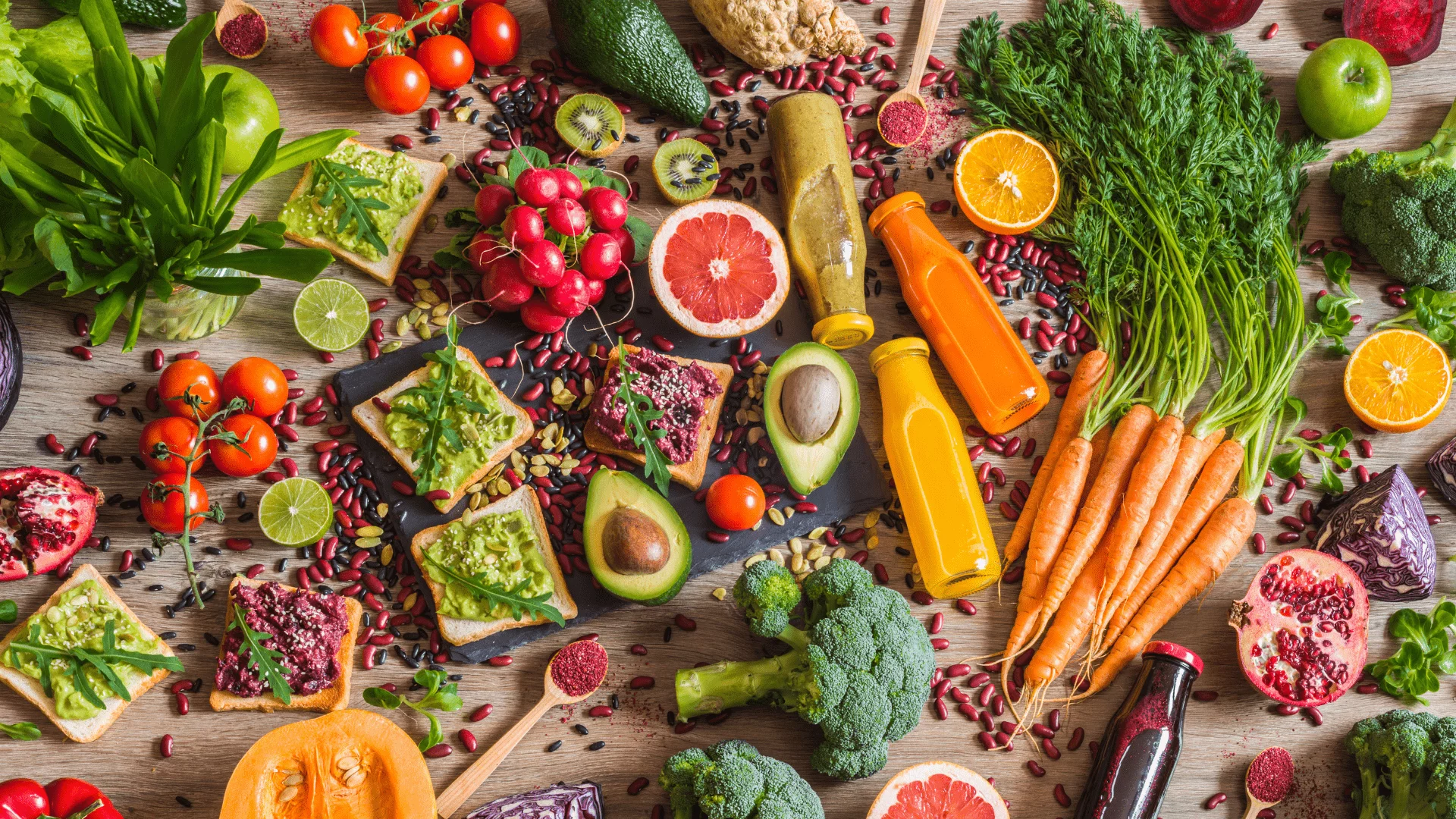
The complete beginner’s guide to veganism
Even though you can absolutely be healthy on a diet that includes animal products, the scientific consensus shows that increasing your consumption of plant-based foods is what is best for health.

Physical vs emotional hunger—learn the difference
You may be aware that physical hunger is not the only type of hunger that exists. There are actually two main types of hunger: physical hunger and emotional hunger



Comments are closed.